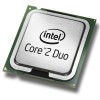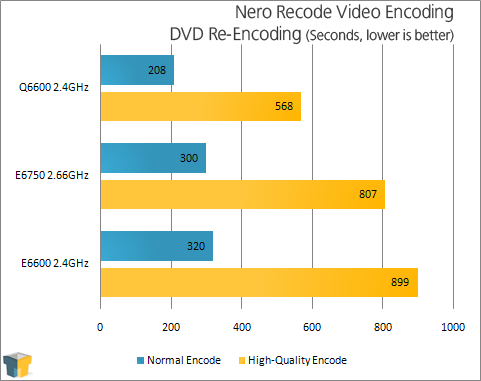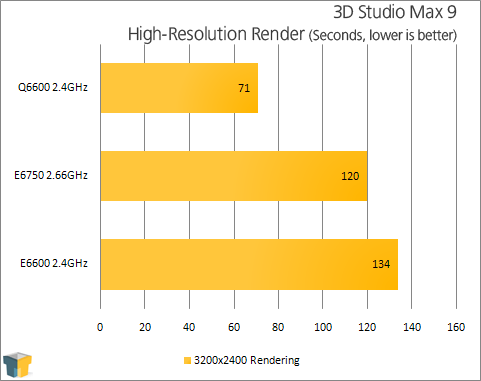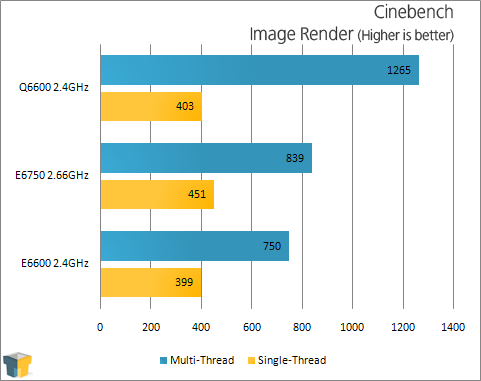- Qualcomm Launches Snapdragon 4 Gen 2 Mobile Platform
- AMD Launches Ryzen PRO 7000 Series Mobile & Desktop Platform
- Intel Launches Sleek Single-Slot Arc Pro A60 Workstation Graphics Card
- NVIDIA Announces Latest Ada Lovelace Additions: GeForce RTX 4060 Ti & RTX 4060
- Maxon Redshift With AMD Radeon GPU Rendering Support Now Available
Intel Core 2 Duo E6750 Preview

When Bearlake launched last month, it opened the doors for native 1333FSB processor support. That’s where the refreshed Conroe line-up comes into play. In our performance preview of the E6750, we will show you what to expect when it’s released later this summer.
Page 4 – Nero Recode, 3D Studio Max, Cinebench
Nothing can prove the performance of a PC better than real-world benchmarks. The only downside to real-world tests is that it’s difficult to compare to a friends computer, unless they happen to have the same software and media files that you are encoding/converting. We can show direct differences though, since we run the exact same tests on each processor.
To test video encoding capabilities, we ripped our “Lamb of God – Killadelphia” concert DVD and then used Nero Recode to convert it into something that can be burned on a normal sized DVD. The direct DVD rip is 7.7GB, and Recode compresses it into a 4.5GB one.

The high-quality mode showed a definite improvement with the E6750, proving to be 11% faster than the E6600. Given the fact that the clock speed is 11% greater, it’s to be expected.
If there is one audience who can benefit most from additional cores and CPU frequency, it’s the multi-media crowd, and that’s where our 3D Studio Max benchmark comes into play. We take a model that consists of 406 objects and 106,000 vertices, and render it at a high 3200×2400 resolution.

Neither Dual-Core was a match for the Quad-Core, but the E6750 once again showed a nice increase over the E6600. This won’t make a large difference in small renders like this, but larger projects it could mean the difference of ten minutes, or hours.
Like 3D Studio Max, Cinebench emulates a similar scenario, where you render a high-resolution image. The nice thing about Cinebench though, is that it spits out a nice, clean number and also shows you your gain when moving to multi-threaded rendering.

According to the scores, the E6750 was about 13% faster over the E6600. It’s easily seen that the most beneficial path to take though is with the Quad-Core. There is just no comparison if the application can handle multi-threadedness.
Support our efforts! With ad revenue at an all-time low for written websites, we're relying more than ever on reader support to help us continue putting so much effort into this type of content. You can support us by becoming a Patron, or by using our Amazon shopping affiliate links listed through our articles. Thanks for your support!





